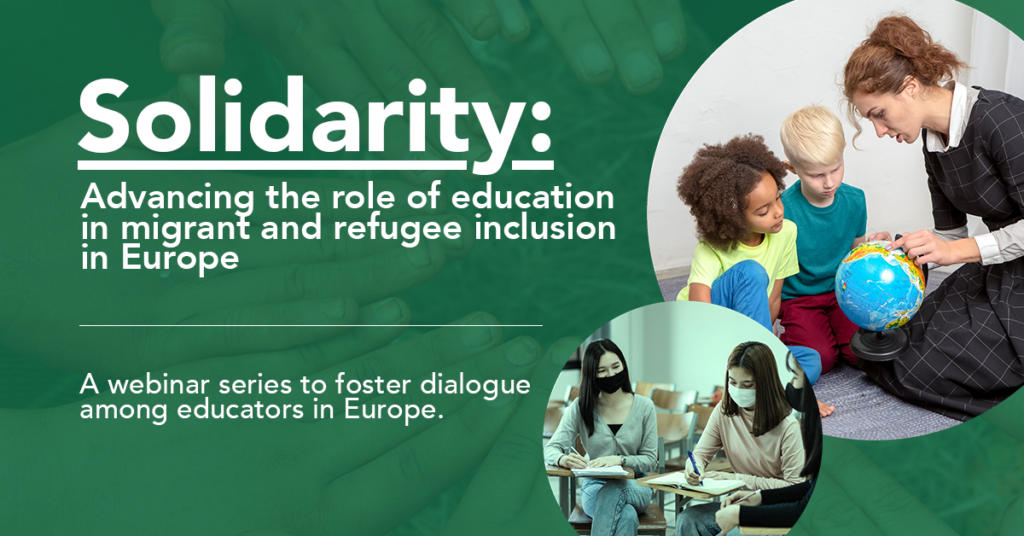A booklet titled Solidarity: Advancing the Role of Education in Fostering Migrant and Refugee Inclusion in Europe, was launched in November 2021 as part of a project to support educators and policymakers working with migrants and refugees in Europe.

This booklet aims to contribute to creating a new narrative of inclusion through education that moves away from the perception of a one-way relationship—whereby migrants and refugees must integrate into the host community—towards creating a reciprocal process of learning that increases the possibilities of harmoniously living together in plural societies. Inclusive education plays a critical role in this process.
The booklet builds on the reflections and recommendations collected during a series of three webinars that were organized in 2021 for educators working with children across Europe. Under the title Solidarity: An Ethical Imperative for Advancing the Role of Education in Migrant and Refugee Inclusion in Europe, the webinars aimed to create dialogue, raise awareness, and build capacity in the transformative role that education can play in enabling children from migrant, refugee, and host communities to learn to live together in solidarity.
A distinguished panel of experts guided and moderated the discussions, enriching the conversations with their valuable insights. The webinars were attended by 192 participants, whose knowledge and practical experiences contributed to the development of this booklet. The recordings of the webinars, resources and reports can be found HERE.
The Solidarity booklet is designed to be used by educators in formal and non-formal education settings working with migrants and refugees; policymakers who would like to learn about successful practices and the best ways to address issues of inclusion between migrants, refugees, and host communities through education, and all those who are interested in finding ways to support inclusive education either through research, advocacy, or informal programs.
The development of this resource aims to invite readers to reflect on the dynamics and main challenges affecting migrant, refugee, and host communities in Europe and to create awareness on the transformative role of education to foster learning to live together.
The booklet provides recommendations for the psychosocial support needed to ensure the social, emotional, and spiritual well-being of children and the creation of conducive learning environments. It empowers educators to use intercultural and interfaith learning through transformative pedagogical approaches that promote children’s well-being, social transformation, and capacity to learn to live together and provides recommendations for educators, schools, organizations working with migrants and refugees, and policymakers.
This project was a collaboration between Arigatou International – Geneva and Synyparxis, an ecumenical organization from the Church of Greece. The project was funded by KAICIID’s platform Network for Dialogue.
